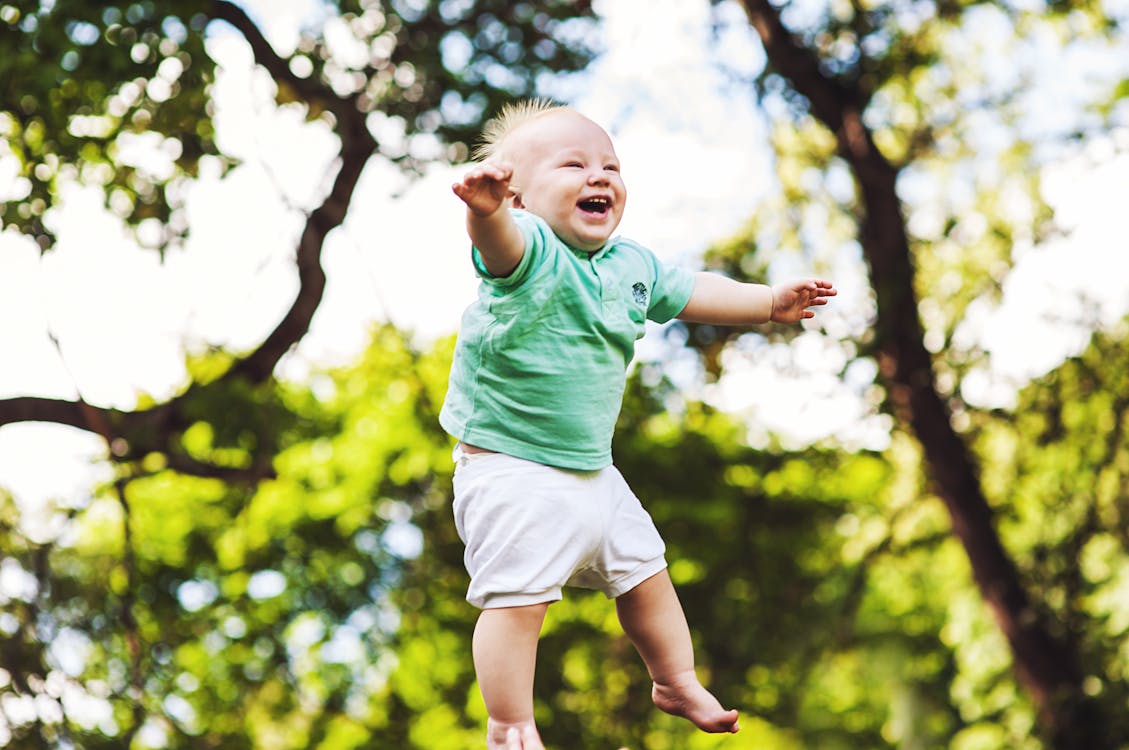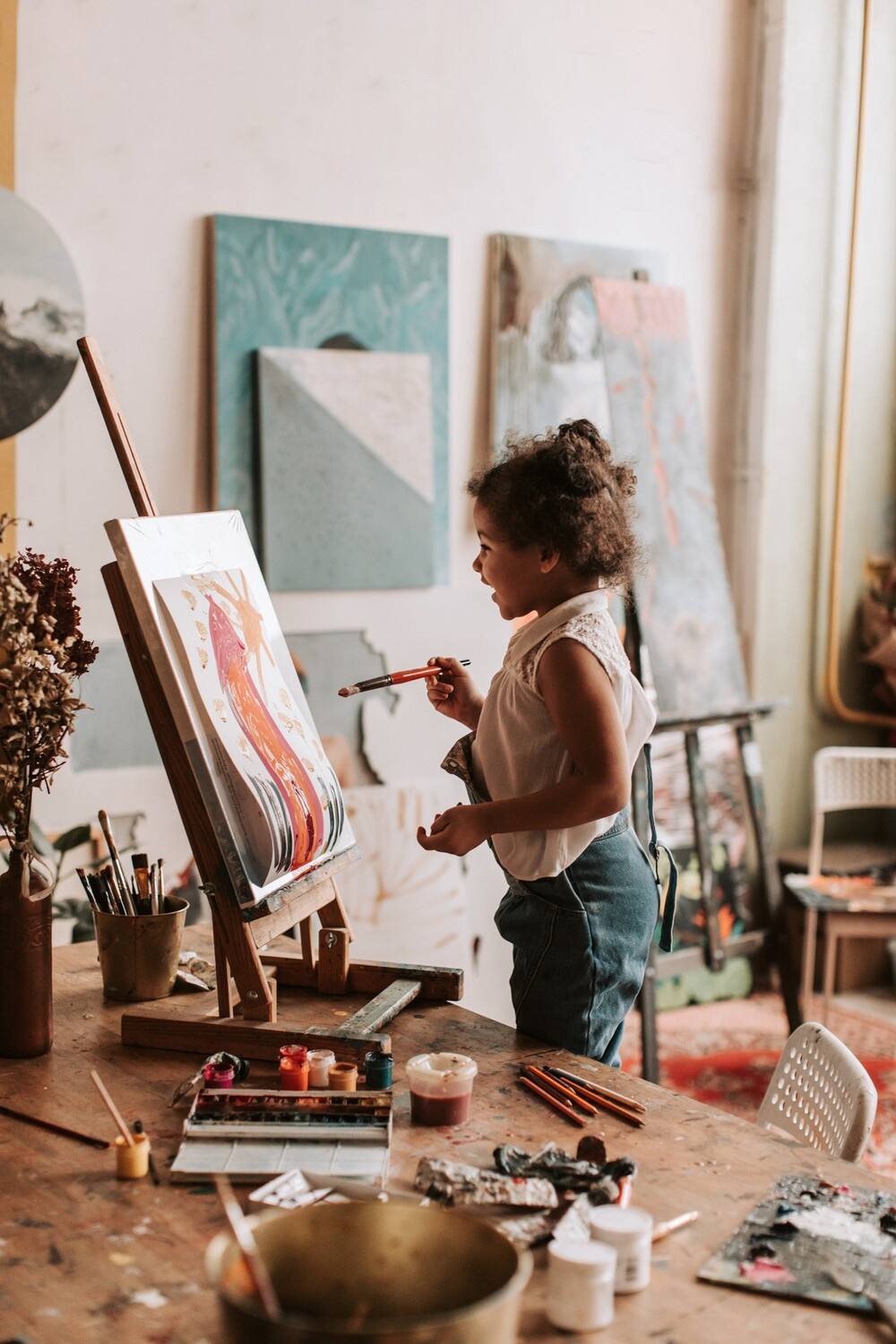Contrary to common assumption, creativity is not an innate trait bestowed at birth; rather, it is a skill that can be developed and encouraged, particularly in youngsters. It is a popular misperception that creativity only reveals itself in creative undertakings such as painting or music. In actuality, its reach is significantly broader, with important applications in science, mathematics, and even the development of social and emotional intelligence. A creative child is a flexible thinker and an effective problem solver, both of which are essential qualities for adjusting to our ever-changing environment. As Picasso famously stated, “Every child is an artist. The problem is how to remain an artist once we grow up.”
So how can we foster true and long lasting creativity ?
What is Creativity and What’s the Scientific Basis behind it?
At its foundation, creativity is the capacity to produce fresh and vital ideas by going beyond conventional thinking to discover new concepts, solutions, or creative expressions. Science examines creativity through a multidisciplinary perspective that includes elements of psychology, neurology, and even genetics. Neuroscience research has shed light on how particular brain areas, such as the prefrontal cortex and the default mode network, are critical for creative thinking. These regions are engaged in processes including divergent thinking, complicated problem solving, and connecting different concepts. Psychological research, on the other hand, taps into the characteristics and thinking processes that promote creativity, such as openness to experience, intrinsic drive, and the ability to engage in deep work and flow states.
Furthermore, there has been a growing body of research around the genetic element that might tilt creativity to either ends, indicating a complicated interaction between inherited qualities and environmental effects. Creativity is also examined in the context of developmental psychology, which investigates how it grows and may be nourished during the lifespan of an individual. This field of study emphasizes creativity as a multidimensional construct that is deeply ingrained in the human cognitive process and essential to both individual and social advancement at large.

Cultivating Creativity, Practical Tips for Parents
One key approach, and widely used modality for the nourishment of creativity is offering kids with an adequate amount of unrestricted and experimental playtime. This entails giving children time without detailed directions, allowing their thoughts to wander freely and explore ideas spontaneously. Encouraging curiosity by asking open-ended questions about their thoughts and creations may help spark creativity. It is critical to provide a SAFE atmosphere for creativity in which kids feel comfortable sharing their thoughts without fear of judgment or punishment. This entails rewarding the work and process rather than the end result, Thereby encouraging a growth mentality. Furthermore, exposing youngsters to a diverse range of experiences, such as music, art, and cultures, could expand their creative perspectives and inspire new ideas.
Keeping art supplies such as brushes, crayons, Animals paint by numbers kits and craft items within easy reach promotes spontaneous artistic creativity. Technology, too, can be an instrument for creativity, with applications and digital platforms providing new avenues for artistic expression. Finally, setting a good example and participating in creative activities yourself may be an enormous motivation for children, demonstrating the importance and delight of creative endeavors in everyday life.
How to Hack into Your Child’s Artistic Engagement?
Incorporating familiar characters, animals, and cartoons into activities such as painting may dramatically increase engagement and interest, particularly among young learners and novices in art. For example, using a "Tiger Paint by Numbers" kit allows kids to connect with the magnificent grandeur of animals, building a respect for nature while improving their painting capabilities. Similarly, "Octopus Paint by Numbers" provides a glimpse into the fascinating undersea world, mixing the excitement of learning about marine life with the creative process of painting. An octopus's vast and diverse color palette may both test and improve a painter's ability to combine and discern hues.
On the other hand, A "Lion Paint by Numbers" kit captures the spirit of the jungle king, appealing to children who are charmed by these beautiful creatures. Consider participating in theme-based art projects that are relevant to their interests, such as space or fairy tales, and encouraging them to create stories via their crafts. Participating in collaborative art projects with your child deepens your relationship while also validating their interest in art.
Introduce them to a range of materials, such as clay and collage, watercolors, and digital art, to sustain their interest and help them identify their preferred forms of expression. Spend time together enjoying different artworks, discussing what you both find appealing, and creating fun, age-appropriate artistic tasks to develop their creativity.
Displaying their artwork at home validates their efforts and enhances their confidence. Incorporate art into play by engaging in games like Pictionary and taking their artistic ventures outside to get inspiration from nature. Most essential, follow their lead and go deeper into the genres or themes they have a strong interest in.
Lastly, By cultivating our children's artistic abilities, we open the door to a world of creativity and self-expression. As we go with them, each brushstroke and drawing reflects their growing imagination and our shared bond in this vibrant experience.


No comments yet